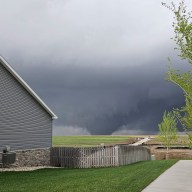 Follow our tips and this could be you.
Follow our tips and this could be you.
Credit: Metro File
The health buzz-term of the season — the pollen vortex — is a result of the high number of tree pollens being released after their long winter of rest.
But Dr. Raymond Dattwyler, New York Medical College’s Chief of Clinical Immunology, Allergy and Rheumatology, thinks that media and drug companies are just instilling fear.
“It’s meaningless,” he says, dismissing the notion of a pollen vortex.“Every spring there are articles saying this will be the worst season ever. It’s always sensationalized. March was cold, so pollen counts were low. They got higher at the end of April. They were high but not extraordinary.”
However, the doctor says that the overall incidence of allergies is growing, which means the incidence of spring allergies is growing with it. Therefore, more people will be suffering symptoms. Here are his tips for dealing with yours.
Get the right meds
OTC or prescription drugs can provide relief, but sometimes the big guns are needed. “Your doctor can help with a prescription for a steroid nasal spray,” Dattwyler says.
Cut down on antibiotics
“We’re changing our natural body flora and that makes you more allergic. There is too much use of antibacterial soaps and too many antibiotics prescribed,” the doctor says.
Use a neti pot
“Rinsing out the nose with salt water can lessen the pollen and lower your risk,” he says.
Don’t stress
“Stress is bad for the immune system. The stronger the immune system, the more long-term allergies lessen,” Dattwyler says.
New hope
Merck has two newly FDA-approved sublingual (taken under the tongue) drugs: Ragwitek, for fall’s ragweed pollen allergies (August to November), and Grastek, for grass pollen allergies, which occur later in summer. Treatment for both begins at least 12 weeks before the expected onset of the season. Similar spring allergy vaccines are useful, says Dattwyler.
“It makes allergy sufferers less reactive, less sensitive. But it takes time to work and it’s already too late for this season.”
















